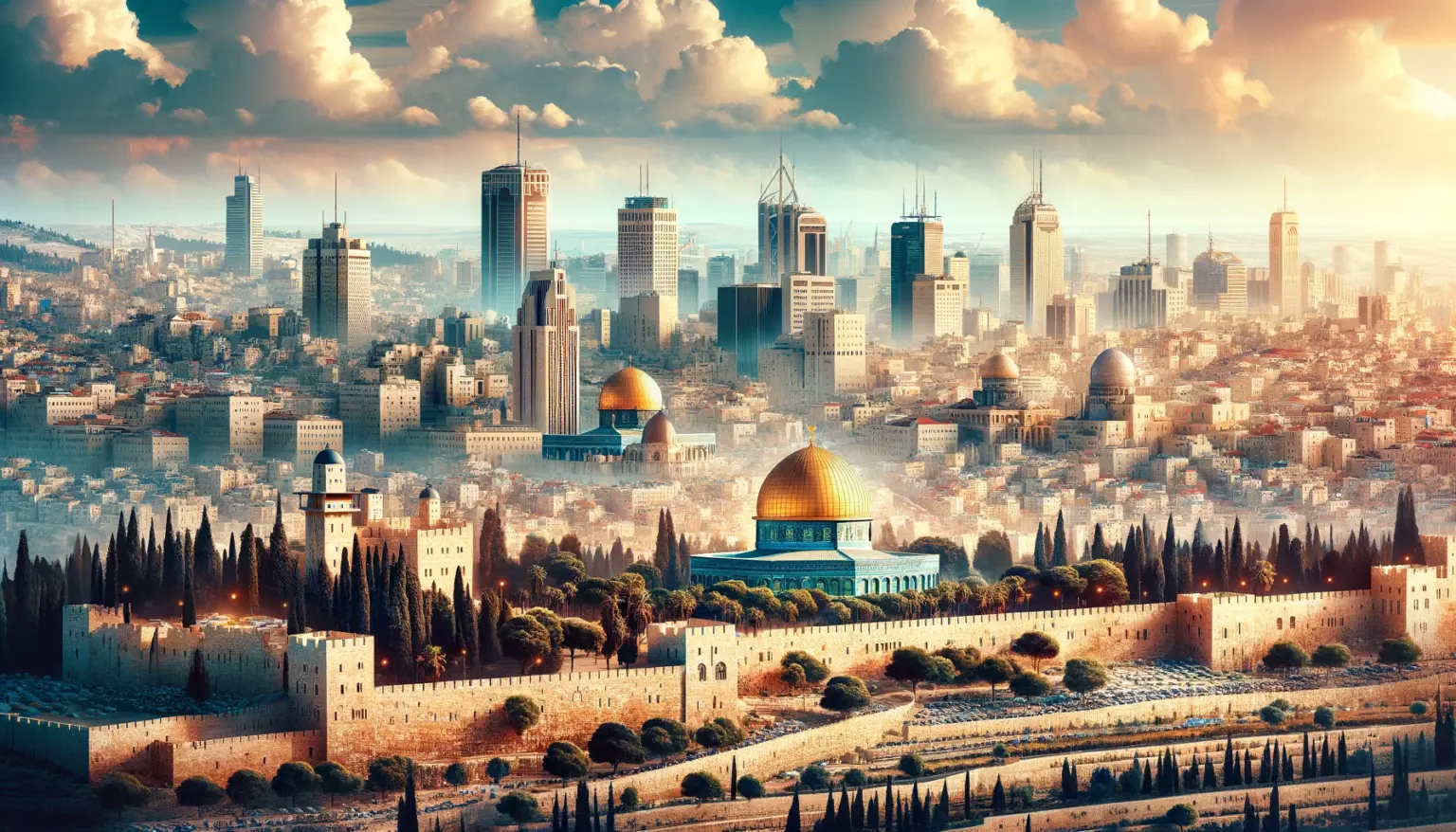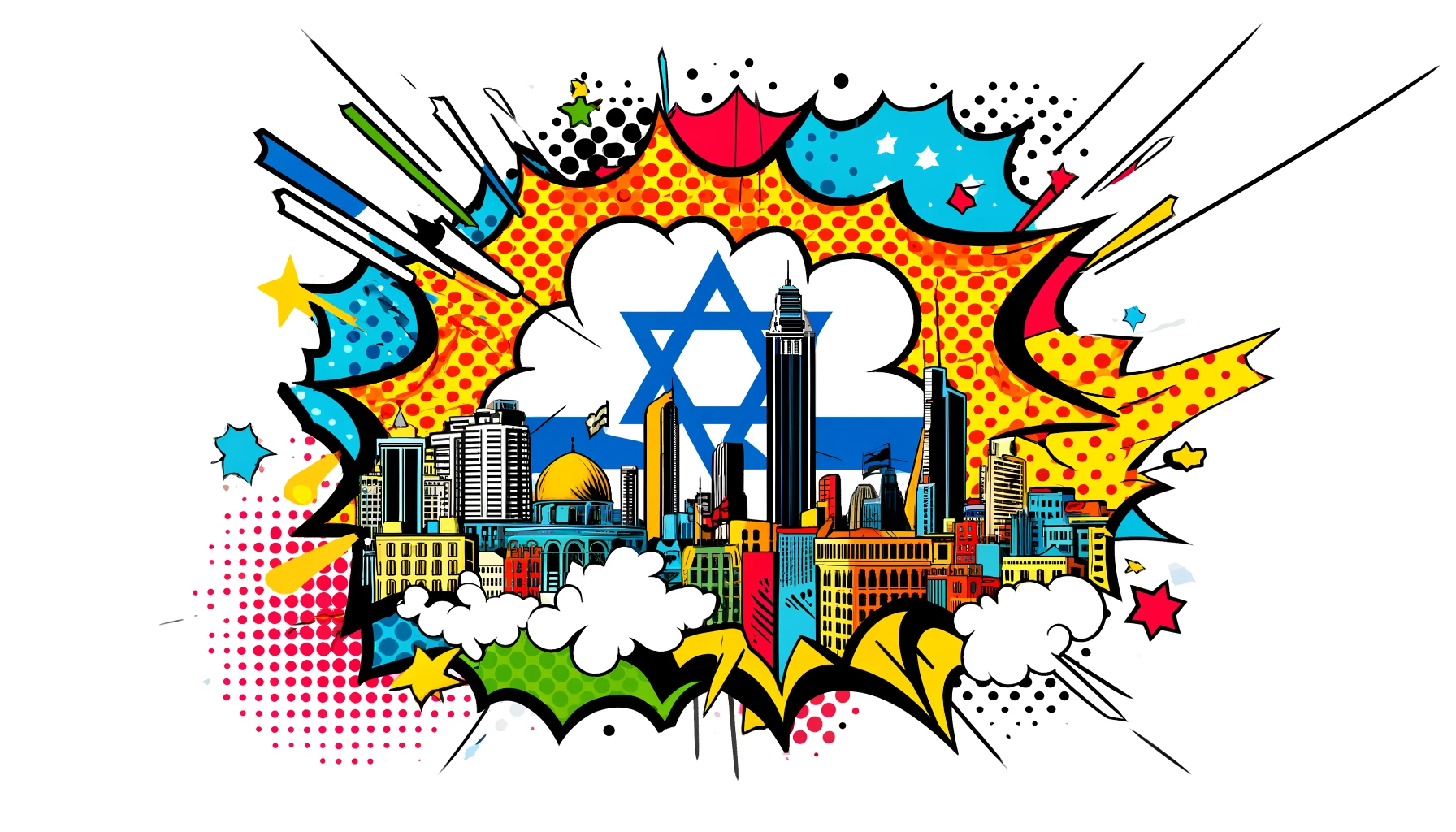Yom Yerushalayim, or Jerusalem Day, holds a special place in the heart of Jewish history and culture. This day marks the anniversary of the reunification of Jerusalem during the Six-Day War in 1967. For many, it is a day of profound significance, representing not only a military victory but also the fulfillment of a long-held dream. In this article, I aim to delve into the historical context, the events of the reunification, and the ongoing significance of this day for Jews around the world.
Historical Context of Jerusalem Before 1967
Before 1967, Jerusalem was a city divided. Following the 1948 Arab-Israeli War, the city was split into East and West Jerusalem, with the eastern part, including the Old City, under Jordanian control. The division of the city meant that Jews were barred from accessing their holy sites, including the Western Wall. This period was marked by political tension and occasional skirmishes, as the desire for a unified Jerusalem remained a potent force in Israeli and Jewish consciousness.
The Six-Day War in June 1967 emerged from escalating hostilities between Israel and its neighboring Arab states. The war’s outbreak was a dramatic moment in Middle Eastern history, as Israel faced existential threats from all sides. The battle for Jerusalem was one of the most critical and emotionally charged confrontations during this conflict.
The Reunification of Jerusalem
The morning of June 7, 1967, was etched into the annals of history as the day when Israeli paratroopers broke through the Jordanian defenses and entered the Old City of Jerusalem. The capture of the Old City and the Western Wall was a moment of immense national pride and spiritual fulfillment. Soldiers, many of whom had never seen Jerusalem, were overcome with emotion as they reached the sacred stones of the Western Wall.
The reunification of Jerusalem was not just a military achievement but a deeply symbolic moment. It represented the end of a 19-year separation and the restoration of Jewish access to their most revered sites. The iconic images of soldiers praying at the Western Wall became emblematic of the broader victory and a source of inspiration for Jews worldwide.
Religious and Cultural Significance
Jerusalem holds a central place in the religious consciousness of Judaism, Christianity, and Islam. For Jews, it is the site of the ancient temples and the eternal capital of Israel. The Western Wall, the last remnant of the Second Temple, is a place of pilgrimage and prayer, embodying centuries of longing and devotion.
Yom Yerushalayim is observed with a mixture of religious fervor and national pride. Synagogues hold special prayer services, and communities around the world commemorate the day with educational programs and cultural events. It is a time to reflect on the spiritual significance of Jerusalem and to celebrate the city’s role in Jewish identity.
Modern Celebrations of Yom Yerushalayim
Today, Yom Yerushalayim is marked by various celebrations and events that bring together people of all ages. In Jerusalem, the day begins with prayer services and continues with a festive parade through the city’s streets. Thousands of people, including schoolchildren, youth groups, and soldiers, participate in these events, waving Israeli flags and singing patriotic songs.
Educational programs play a significant role in the celebrations, with schools and community centers organizing lectures, workshops, and exhibitions about the history and significance of Jerusalem. These activities help to instill a sense of connection to the city and its heritage in the younger generation.
Controversies and Perspectives on Yom Yerushalayim
Despite its celebratory nature, Yom Yerushalayim is not without controversy. Different political and religious groups hold varied perspectives on the significance of the day. For many Israelis and Jews, it is a joyous occasion marking a historic victory. However, for Palestinians and some international observers, the day is seen as a reminder of ongoing conflict and occupation.
The reunification of Jerusalem had significant implications for Palestinian communities in East Jerusalem. Issues of sovereignty, residency rights, and political status remain contentious. These differing viewpoints underscore the complex and often fraught nature of Jerusalem’s status in the broader Israeli-Palestinian conflict.
Personal Stories and Testimonials
The stories of those who experienced the reunification firsthand provide a deeply personal and human dimension to Yom Yerushalayim. Many Israeli soldiers who fought in the Six-Day War recall the intense emotions of that day. For instance, Motta Gur, the commander who announced, “The Temple Mount is in our hands,” described the moment as a culmination of a 2,000-year-old dream.
Residents of Jerusalem also have vivid memories of the day. Some recall the fear and uncertainty of the war, followed by the overwhelming joy and relief at the news of reunification. These personal narratives offer a poignant reminder of the human experiences behind historical events.
Conclusion: The Ongoing Significance of Yom Yerushalayim
Yom Yerushalayim is a day that encapsulates the enduring significance of Jerusalem in Jewish life. It is a celebration of historical achievement, religious devotion, and national identity. As we look to the future, the ongoing challenges surrounding Jerusalem remind us of the city’s complex role in global peace efforts. Nevertheless, Yom Yerushalayim remains a powerful testament to the resilience and spirit of those who cherish Jerusalem as a symbol of faith and hope.
10 Interesting Facts About Yom Yerushalayim
- Date of Celebration: Yom Yerushalayim is celebrated on the 28th of Iyar in the Hebrew calendar, which usually falls in May or early June.
- Six-Day War Victory: The day marks the capture of East Jerusalem by Israeli forces during the Six-Day War in 1967, leading to the reunification of the city.
- Emotional Impact: The recapture of the Western Wall and the Old City evoked powerful emotions among Israelis, symbolizing a historic and spiritual triumph.
- Official Holiday: Yom Yerushalayim was declared an official Israeli national holiday in 1968, a year after the reunification.
- Religious Significance: Special prayers, including the Hallel (psalms of praise), are recited in synagogues, and thanksgiving services are held to mark the day.
- Parades and Marches: The day is marked by large parades, particularly the traditional flag march through the streets of Jerusalem, culminating at the Western Wall.
- Educational Activities: Schools and educational institutions hold special programs to teach students about the historical and cultural significance of Jerusalem.
- Controversy and Debate: While celebrated by many, Yom Yerushalayim is also a day of contention, particularly among Palestinians and some international communities, due to the political implications of the reunification.
- Jerusalem Prize: The Jerusalem Prize, a literary award for writers whose work deals with the theme of individual freedom in society, is often presented during Yom Yerushalayim celebrations.
- Cultural Events: The day includes a variety of cultural events such as concerts, lectures, and exhibitions that highlight Jerusalem’s diverse heritage and its importance to different communities.
As someone who has long been fascinated by the rich tapestry of Jerusalem’s history, Yom Yerushalayim represents a poignant convergence of past and present. The reunification of Jerusalem is not merely a historical milestone but a deeply personal moment for many Jews around the world. It symbolizes resilience, faith, and the enduring hope for peace. In celebrating this day, we honor both the ancient and modern stories that make Jerusalem a unique and sacred place.
#LeaveTheOfficeEarlyDay #WorkLifeBalance #Productivity #EmployeeWellbeing #OfficeLife #MentalHealth #TeamBuilding #WorkCulture #JobSatisfaction #Efficiency












Celebrating Yom Yerushalayim with insights into the reunification of Jerusalem. A wonderful read!
Jerusalem reunification day ✡️
Nicely explained!
Celebrating Yom Yerushalayim is well explained here. It’s wonderful to understand the importance of this day.
Yom Yerushalayim is an important celebration. This article captures the significance and traditions of the reunification of Jerusalem well. Well written!